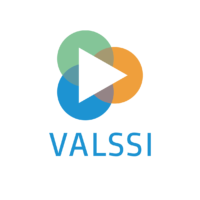Evaluation tools and reflective questions

Valssi includes a wide range of evaluation tools, from which the municipality or private service provider can choose one that suits their needs. The evaluation tools currently available in Valssi are listed below.
The downloadable files contain a description of the evaluation tools’ contents, examples of the criteria and the reflective questions for respondents (in Finnish). The reflective questions can be used as part of discussions and reflection during the evaluation process. ECEC service providers will have access to the complete evaluation tools through Valssi.
The evaluation tools are divided into structural and process elements of quality. This division is in line with the quality indicators developed for Finnish ECEC, i.e. research-based descriptions of the essential and desirable properties of high-quality early childhood education and care. More information on the indicators can be found in the document Guidelines and recommendations for evaluating the quality of early childhood education and care: Link
Structural factors of ECEC quality and the indicators describing them
Structural factors of quality are factors related to the organisation of early childhood education as defined in and governed by acts, decrees and other national documents. For this reason, factors of quality related to structures are relatively permanent. They are linked to such aspects as who is responsible for ECEC activities, where ECEC activities take place, and what type of a setting is created for the activities. Consequently, they set marginal conditions for pedagogical activities, or process-related factors of quality. Evaluation tools related to structural factors are meant to respondents working at municipal/organization level, expert level or as the heads of ECEC centres.
| Structural factors of ECEC quality and the indicators describing them | Evaluation tools |
|---|---|
| Legislation on early childhood education and care | |
At the national level 1. ECEC legislation is developed ensuring that it secures the organisation, delivery, evaluation and development of high-quality early childhood education and care. The national-level statutes are understandable and comprehensive. 2. The staff-child ratio and the group size and structure specified in the legislation are based on research evidence and expert knowledge regarding ECEC quality and a child’s development, and they enable the organisation of pedagogical activities in a manner that allows the achievement of the objectives set for early childhood education and care. 3. The staff qualification requirements laid down in legislation are based on the evolving competence requirements of early childhood education and care. Expert knowledge and research evidence are taken into account in the definition of the qualification requirements. 4. The legislation sets clear and comprehensible objectives, tasks and requirements for the different operating forms of early childhood education and care. | FINEEC and other actors provide evaluation information on the implementation of indicators at national level |
| Adequacy, availability, accessibility and inclusiveness of early childhood education and care | |
At the national level 5. The national steering system safeguards every child’s right to early childhood education and care. High-quality services implementing the principle of inclusiveness are available and accessible to all children. 6. The national steering system sets the policies for and safeguards the provision of support for individual development and learning, ensuring that each child receives the support they need. At the local level 7. ECEC organisers must ensure the availability and accessibility to all children of high-quality ECEC services in which the principle of inclusiveness is implemented. 8. Local ECEC services have been organised to safeguard the provision of support for development and learning, ensuring that each child receives the support they need. The support needed by a child is provided in the child’s usual learning environment. At the level of pedagogical activities 9. The leader of the day-care centre ascertains every day that a sufficient number of staff as required by law and considering the number of children is present, ensuring that the children's safety and the permanence of interactive relationships can be guaranteed and the objectives set for early childhood education and care are reached. 10. ECEC staff ensure that all children can participate in all activities, regardless of their background and individual characteristics. | FINEEC and other actors provide evaluation information on the implementation of indicators at national level
Local guidelines of support for development and learning
|
| Curriculum guiding early childhood education and care | |
At the national level 11. The organisation and delivery of ECEC is guided and regulated by a national-level curriculum that pays attention to children’s holistic development, learning and wellbeing and pedagogy that promotes them. The curriculum concerns all children under the school age in all forms of ECEC. At the local level 12. The locally prepared curriculum translates the national curriculum into concrete terms and serves as a tool for achieving the objectives set for early childhood education and care for the staff. 13. The local curriculum is evaluated together with key stakeholders, including the children, guardians, decisionmakers and partners. | FINEEC and other actors provide evaluation information on the implementation of indicators at national level
|
| Staff’s basic and in-service training and other competence development | |
At the national level 14. The national steering system sets the policies for and promotes the implementation and development of the staff’s basic training and methodical and continuous in-service training, ensuring that they meet the needs arising from the delivery of high-quality ECEC services. At the local level and the level of pedagogical activities 15. ECEC staff’s in-service training and other development of professional competence are methodical and based on verified needs for competence development. Staff members are encouraged in pursuing in-service training, and opportunities for doing so are created. | FINEEC and other actors provide evaluation information on the implementation of indicators at national level
Staff’s in-service training and other competence development (Form for experts) Staff’s in-service training and other competence development (Form for ECEC staff) |
| Guidance and counselling related to ECEC for guardians | |
At the local level 16. Comprehensive guidance and advice related to ECEC services are provided, ensuring that guardians are clearly informed of the ECEC operating forms, their characteristics and their missions. 17. Guidance and advice related to ECEC for guardians ensure that children's equal right to and possibilities for participating in early childhood education and care are realised. The child’s right to ECEC is the primary grounds for providing advice and guidance. | Guidance and counselling related to ECEC for guardians |
| Guidance, advice, and oversight related to ECEC services | |
At the national level 18. The national steering system sets the policies on the guidance of and advice provision for private early childhood education and care at the local level by clearly defining the private service provider’s responsibilities and the municipal organiser’s duties. At the local level 19. Guidance and oversight of and advice provision for private ECEC services are implemented ensuring that the achievement of statutory and qualitative objectives set for early childhood education and care is secured in privately produced services. | FINEEC and other actors provide evaluation information on the implementation of indicators at national level
Guidance and oversight of and advice provision for private ECEC services |
| Uniform educational system and transitions | |
At the national level 20. A uniform system of education and instruction extending from early childhood education and care to other levels of education ensures that transitions are smooth and secure the availability of equitable continuums on learning paths. At the local level 21. Children's transitions from home to early childhood education and care, within ECEC services, and further to preprimary education and basic education are planned and carried out ensuring that the children’s learning path is a smooth and equal continuum. At the level of pedagogical activities 22. The staff together with the children's guardians plan and implement effective practices that support the children's feeling of security and learning when they move from home care to early childhood education and care. 23. Together with other ECEC professionals, basic education professionals and guardians, the staff plan and implement effective practices that promote children’s wellbeing and learning for transitioning between different ECEC forms or units or from ECEC and pre-primary education to basic education. | FINEEC and other actors provide evaluation information on the implementation of indicators at national level
Children's transitions from home to early childhood education and care (Form for ECEC staff) |
| Structures for evaluating and developing early childhood education and care | |
At the national level 24. The entity of the national evaluation system produces relevant and comprehensive evaluation data. Evaluation is systematic and supports ECEC development and the achievement of the objectives set for ECEC at different levels. At the local level 25. ECEC organisers and private service providers have an evaluation system through which ECEC services and pedagogy can be developed. 26. Regardless of the forms and organisation methods of early childhood education and care, all parties to ECEC participate in the evaluation and development. This includes actors at the different levels of the organisation, the children and their guardians, and decision-makers. | FINEEC and other actors provide evaluation information on the implementation of indicators at national level
|
| ECEC leadership system | |
At the local level 27. The local level has a clear decision-making and leadership system, leadership structures and procedures for early childhood education and care. The leadership system supports the staff’s pedagogical work and the children's wellbeing as well as ensures that the objectives set for early childhood education and care are achieved. 28. Leadership in ECEC is based on evaluation, monitoring and anticipation data as well as expert knowledge and research-based evidence. The persons responsible for leadership in ECEC have sufficient expertise in early childhood education and care and leadership skills. | |
| Staff structure and resources reserved for ECEC | |
At the local level 29.To deliver early childhood education and care, sufficient personnel and financial resources are reserved and the personnel structure is planned to ensure that the objectives set for early childhood education and care are reached and that children’s stable interaction relationships with the staff and their peers can be secured. At the level of pedagogical activities 30. The personnel structure and numbers as well as the other resources in child groups are allocated to ensure that the objectives set for early childhood education and care are achieved and that children’s stable interaction relationships with the staff and their peers can be secured. | |
| Structures and planning of working time in ECEC | |
At the local level 31.The policies and steering regarding working time structures, planning and arrangements ensure that the staff can carry out methodical ECEC work by optimally drawing on their professional training and competence. At the level of pedagogical activities 32.The working time structures and working times enable the optimal utilisation of the staff’s professional competence, taking the children’s best interest into account. | |
| Child group structure and size | |
At the local and pedagogical activity level 33. The structure and sizes of child groups are determined with the children's best interest and wellbeing and the promotion of learning as the primary guidelines. | |
| Learning environments of early childhood education and care | |
At the local and pedagogical activity level 34. All ECEC learning environments are healthy, safe and diverse and promote learning. |
Process-related factors of ECEC quality and the indicators describing them
Process-related factors of quality describe the core functions of early childhood pedagogy and a unit’s pedagogical operating culture, both of which are directly linked to the child’s experiences. The process-related factors of quality describe how the objectives and content specified for early childhood education and care are realised in practice. The structural and process-related factors of quality interact dynamically and are manifested at different levels of early childhood education and care. Evaluation tools related to process factors are targeted to ECEC staff working in child groups.
| Process-related factors of ECEC quality and the indicators describing them | Evaluation tools |
|---|---|
| Staff-child interaction | |
1.Interaction is positive, caring, encouraging and gentle. The staff are committed to each child and the child group. 3.The staff work sensitively, taking notice of the children’s initiatives and responding to them in a manner that supports the children's participation and agency. 5.The staff take all children in the group into consideration and understand the different ways in which the children express themselves. | Sensitive interaction and different ways of expression |
2. The staff interact reciprocally with the children in a manner compatible with the children's development, interests and learning capabilities. 4. The staff’s language use is as rich and diverse as possible taking the children’s age and level of development into account. The staff adapt their language use to the child’s world of experience, verbalise the activities, and encourage children to participate in daily linguistic interaction as permitted by the child’s capabilities and skills. | Reciprocal and linguistic interaction |
| Pedagogical planning, documentation, evaluation and development | |
6. The staff are responsible for the planning, documentation, evaluation and development of activities in line with the curriculum in a manner that supports the children’s learning and development. 7. The staff observe and document the children's daily lives in early childhood education and care regularly and systematically in order to understand the child’s world of experience. Information produced together with the children and using diverse methods is used in the planning, implementation, evaluation and development of the activities. | The pedagogical process (planning, documentation, evaluation and development of activities) |
| Pedagogical activities and learning environments | |
8. ECEC activities are meaningful and inspiring for the children and challenge them to learn. 9. The staff and the children carry out together versatile pedagogical activities based on play, physical activity, arts and cultural heritage that offer positive learning experiences for the children. The activities promote the achievement of objectives set for different areas of learning and transversal competence. 10. Children’s individuality is accounted for, helping each child identify and find their strengths and interests | Mathematical thinking Technology education Environment and sustainability education Multiliteracy, digital competence and media education Physical education Play |
11. Meals, rest periods, transitions, dressing and other basic activities are carried out with pedagogical goals in mind. 14. The staff organise the daily transitions to be flexible and consistent, ensuring that the daily routine as a whole supports the child’s wellbeing and learning. | Food education Basic activities |
| 12. A child’s individual needs for support are recognised. The staff assess the need for support together with the guardians, and if necessary, appropriate support is organised for a child in multidisciplinary cooperation. | Support for the child |
| 13. The pedagogical learning environment planned and built together by the staff and the children encourages the children to play, be physically active, explore, create and express. The learning environment is assessed and modified regularly as indicated by the children's needs and interests, ensuring that it challenges and inspires the children to learn. | Physical learning environment |
| Leadership at the level of pedagogical activities | |
15. The head of the ECEC unit is responsible for the goal-oriented and methodical leadership, evaluation and development of their units’ pedagogy and the staff’s opportunities for learning in their work. Pedagogical leadership is implemented with the support of ECEC teachers and ensuring the participation of the entire staff. 16. The ECEC teacher is responsible for planning the activities for the child group, achieving the objectives set for the activities, and the evaluation and development of the activities. The entire staff work together to plan, implement, evaluate and develop the pedagogical activities. | |
| Peer interaction and group atmosphere | |
17. The staff construct a positive learning environment for the children. The atmosphere of the group is safe, warm and caring, and it inspires learning. 18. The staff and the children form a community of learners together in which every child’s meaningful participation in the activities is realised. The staff support the children’s group activities through their guidance and example. 19. The staff build and guide the group's operating culture systematically, ensuring that it promotes, maintains and develops togetherness. The staff ensure that each child can feel they are members of the group and belong to the group. The staff support the children in establishing and maintaining versatile friendships. | Peer interaction, togetherness and group atmosphere |
| 20. The staff ensure that each child thrives in early childhood education and care. The children feel they are heard and valued just as they are. | Supporting the child's emotional well-being and participation |
| 21. The staff build and maintain in the group an atmosphere based on appreciating the children's individual differences and different cultures, religions and world views. The staff support children’s plurilingualism in the group. | |
| Interaction among staff and multidisciplinary cooperation | |
22. The staff work towards professional interaction based on trust, appreciation and respect as part of the ECEC operating culture. 23. The ECEC staff recognise the different professional groups’ professional duties, competence and responsibilities as part of the entity of ECEC work. The staff draw on different skills in ECEC work and its development. 24. The staff recognise their professional responsibilities and competence and those of the parties they work together with, and draw on them in multidisciplinary cooperation. | Multidisciplinary cooperation Interaction between staff |
| Interaction between staff and guardians | |
25. Educational cooperation starts from appreciation for the children and their guardians as well as an open, equal and trusting relationship. The interaction reflects respect for the guardians’ knowledge of their children and for the staff's professional knowledge and competence. 26. Guardians’ participation in planning, carrying out and evaluating early childhood education and care activities is enabled. Different forms and practices of educational cooperation are planned together with the guardians. | Educational cooperation and guardians’ participation |

Janniina Vlasov

